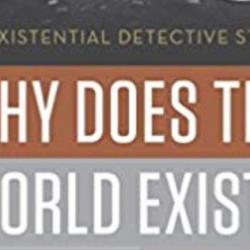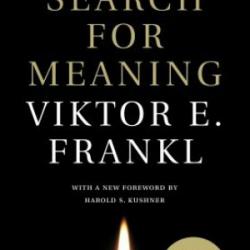If determinism is true, is free will possible? Compatibilists say yes, incompatibilists say no. In his short book Free Will, Sam Harris asserts a very strong incompatibilism; that free will is not only an illusion, but that the very concept is incoherent. He begins by highlighting the problem:
“If a man’s choice to shoot the president is determined by a certain pattern of neural activity, which is in turn the product of prior causes-perhaps an unfortunate coincidence of bad genes, an unhappy childhood, lost sleep, and cosmic-ray bombardment-what can it possibly mean to to say that his will is ‘free’?”
To this question, lie three different perspectives. Liberatarians and determinists both believe, in Harris’ words, “that if our behavior is fully determined by background causes, free will is an illusion”, hence both are incompatibilists. Determinists like Harris see free will as simply incoherent – to his question, given determinism, what exactly is “free”? Libertarians, Harris asserts, “imagine that human agency must magically rise above the plane of physical causation” and “sometimes invoke a metaphysical entity, such as a soul, as a vehicle for our freely acting wills”. Compatibilists, on the other hand, somehow affirm both determinism and free will. Harris has nicely set the stage for the options at hand to deal with the problem, which I will label the following:
- Consequence materialist incompatibilism: Materialism + causal determinism (free will is an illusion)
- Magical materialist compatibilism: Materialism + causal determinism (yet somehow free will exists)
- Magical libertarian incompatibilism: Non-materialism + causal indeterminism (the immaterial soul somehow commands the body)
Harris maintains that free will rests upon the assumptions that we “could have behaved differently than we did in the past” and that we are the “conscious source of most of our thoughts and actions in the present” – both, says Harris, are false. Harris, who’s definitely a philosophical materialist, pulls no punches with materialist philosophers who attempt to maintain compatibilism:
“Compatibilists have produced a vast literature in an effort to finesse this problem. More than in any other area of academic philosophy, the result resembles theology. (I suspect this is not an accident. The effort has been primarily one of not allowing the laws of nature to strip us of a cherished illusion.)”
Prominent philosopher Dan Dennett, chief proponent of compatibilism (and friend of Harris) was definitely at aim in this text, and specifically with these comments. As you might expect, both the book and these comments provoked a highly critical review from Dennett. Harris, in turn, replied to Dennett’s review, and the two have followed with a subsequent podcast discussion.
Some of the strengths of Harris’ writing are brevity and clarity and both are on display in this slim text. Harris, on compatibilism, is unrelenting. He finds compatibilists “like Dennett change the subject: They trade a psychological fact-the subjective experience of being a conscious agent-for a conceptual understanding of ourselves as persons. This is a bait and switch.” To this point, I think Harris is on to something. Given materialism and causal determinism,
“How can we be ‘free’ as conscious agents if everything that we consciously intend is caused by events in our brain that we do not intend and of which we are entirely unaware? We can’t. To say that ‘my brain’ decided to think or act in a particular way, whether consciously or not, and that this is the basis for my freedom, is to ignore the very source of our belief in free will: the feeling of conscious agency. People feel that they are the authors of their thoughts and actions, and this is the only reason why there seems to be a problem of free will worth talking about.”
Dennett, rather than directly addressing Harris’ main arguments with brevity, simplicity, and cogency (in Harris-esque fashion), proceeds with arrogance, verbosity, and word salad. To get to some of the substance in Dennett’s review and apologia of compatibilism:
“He can influence those internal, unconscious actions—by reminding himself, etc. He just can’t influence them at the moment they are having their effect on his choice. (He also can’t influence the unconscious machinery that determines whether he returns a tennis serve with a lob or a hard backhand once the serve is on its way, but that doesn’t mean his tennis strokes are involuntary or outside his—indirect—control. At one point he says ‘If you don’t know what your soul is going to do, you are not in control.’ (p. 12) Really? When you drive a car, are you not in control? You know ‘your soul’ is going to do the right thing, whatever in the instant it turns out to be, and that suffices to demonstrate to you, and the rest of us, that you are in control. Control doesn’t get any more real than that.)”
Sorry Dan, but Sam has your number. In Harris’ words, this amounts to saying “anything that our brains do or decide, whether consciously or not, is something that we have done or decided.” The subjective feeling of freedom, if casual determinism is true, is obviously illusory. As Harris said in his reply to Dennett, “it is not enough at that point for him to simply declare theoretically (third-person) that these antecedent causes are ‘also me.’ Harris continues:
“Average Joe feels that he has free will (first-person) and doesn’t like to be told that it is an illusion. I say it is: Consider all the roots of your behavior that you cannot see or feel (first-person), cannot control (first-person), and did not summon into existence (first-person). You say: Nonsense! Average Joe contains all these causes. He is his genes and neurons too (third-person). This is where you put the rabbit in the hat.”
Wishing for a free will “worth wanting” is like wishing for a religion “worth wanting” – consistent skepticism and materialism has no place for either. To Harris and other’s detection (like Jerry Coyne), the negative nihilistic consequences of labelling free will an illusion seem to be a chief motivation for Dennett’s compatibilism. Coyne and Harris, in my view, are right on target. Compatibilists wanting “free will” or playing language games doesn’t change the fact given the metaphysical picture of just matter and motion, there is only a domino of causation and neural activity, leading up to another action, and another, and so forth. There is no “choice”. “We” are simply along for the ride. Certainly, we feel that we “choose”, and we can add all sorts of vocabulary and world play to call it free will, but what is “free”? The subjective feeling of it? We just act given the specific background causal conditions, environment, and neural presets.
The feeling of free will, asserts Harris, “arises from our moment-to-moment ignorance of the prior causes of our thoughts and actions.” All things come in to focus though, with the question of the day: could we have done otherwise? No, says Harris: “decisions, intentions, efforts, goals, willpower, etc., are causal states of the brain, leading to specific behaviors…” and our actions are “fully determined by the prior state of the universe and the laws of nature…”
To return to the previous triad:
- Consequence materialist incompatibilism: Materialism + causal determinism (free will is an illusion)
- Magical materialist compatibilism: Materialism + causal determinism (yet somehow free will exists)
- Magical libertarian incompatibilism: Non-materialism + causal indeterminism (the immaterial soul somehow commands the body)
Aristotelians like myself (who assert there is not only matter and motion, but formal and final causes in nature) don’t fit so nicely into any of these categories. They agree that a soul type substance tweaking neuroscientific nobs in the brain is just silly. They also agree materialist compatibilism is just as magically silly, not only wrong, but inconsistent. Without formal and final causes, if there is just matter and motion and causal determinism, “free will” is simply an oxymoron. To insist upon it, then serve up world salad and change the subject, is intentional self-deception, specifically avoiding the big question: given materialism and causal determinism, could one have done otherwise? To that end, consequence materialist incompatibilism is at least consistent. Wrong, but consistent.
For the Aristotelian, only formal and final causes of rational creatures seeking that end can account for free will. Human beings, the rational animal, are neither just matter and motion, nor a magical soul substance separate from the body. Rather, humans are an irreducible hylomorphic composite of matter and form, so there is nothing magical about free and rational deliberation. Rejecting teleology, formal and final causes, results in profound philosophical problems that extend way beyond consciousness, free-will, and morality, but existence itself. For Aristotelians, materialistic and dualistic frameworks just don’t cut the mustard on any of the big questions.
Still, the Aristotelian, though omitted from Harris’ triad, nevertheless would agree on the logical consequence of free will, given materialism and determinism. To that end, Harris succeeds on philosophical consistency, at least as far as free will in concerned. Beyond free will will, however, I wonder how far his own skepticism and consistency takes him. How one holds moral possibility, not to mention moral objectivity (Harris’ ethical realism espoused in The Moral Landscape) while rejecting free will, is certainly an interesting predicament, at least for those interested in metaphysics. Here, Harris’ accusation of materialist compatibilists as theologians could be turned right back at him (and are) by folks like Coyne and Rosenberg, who find Harris’ materialism + ethical realism just as religious.
As one who wears Aristotelian goggles, my chief criticism of the text was that his moral philosophy was absent. In all fairness, a concise book on free will need not square the coherence of his metaphysical whole, but some commentary on the intersection of “morality is objectively” + “free will is an illusion” would have been welcome. With that, his supporting science on free will, resting on Libet’s experiments, is extremely weak. The design and interpretations of Libet’s experiments are highly controversial and none of this was taken into account. A large body of evidence, supporting critiques, and how these critiques fail as defeaters to his hypothesis – all were absent.
While weak in scientific rigor, it’s a nice and concise handbook for the philosophical materialist. If I were to put on materialist goggles, I think Harris is dead on with the topic of free will. Fatally mistaken and unbelievably inconsistent on morality, but right on the money with free will. Though his consequent materialist incompatibilism goggles are attractive (and the others he mentioned just plain silly), I choose an entirely different pair.













